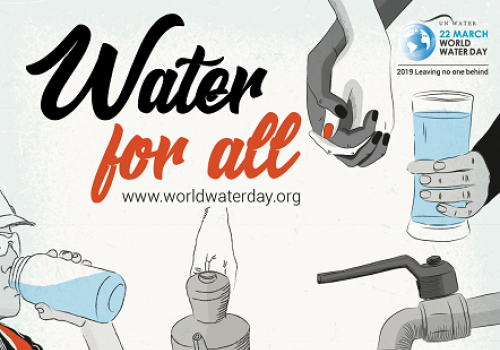Today, 22 March 2019, the Southern African Development Community (SADC) joins the international community in commemorating the World Water Day under the theme: Leaving no one behind.
This year’s commemoration reflects a central commitment to the attainment of Sustainable Development Goals (SDGs), in particular, Goal 6 which focuses on ensuring availability of clean water and sanitation services for all.
The commemoration of the World Water Day comes against a background of limited access to safe water across the globe. A 2018 report by Lifewater shows that, globally, 100 million families are trapped in a cycle of poverty and disease because they do not have access to safe water with more people dying from unsafe water than from all forms of violence, including war. Water-borne diseases kill more children under the age of five than malaria, measles, and HIV and AIDS combined.
In the SADC region, the water situation remains of great concern. A considerable number of people are left behind in as far as access to water and sanitation services are concerned. Approximately, 40% of the region’s people still do not have access to safe drinking water, while about 60% have no access to improved sanitation facilities. The levels of water insecurity and poor sanitation clearly demonstrate that many people are left behind, thereby, posing a major constraint to poverty reduction, and sustainable economic growth and development. Through various strategies, SADC is working to increase access to safe drinking water and sanitation to at least 75%.
As all SADC Member States commemorate this day, there is need to reflect on the importance of water for sustainable livelihoods, and as an essential natural resource for socio - economic development. The commitment to the realization of SDG 6 should be demonstrated by a clear resolve to put in place water policies and strategies that are effectively integrated to improve the water supply and demand management for the people of the region.
On this World Water Day 2018, we recognise that the SADC region is endowed with vast shared water resources with multiple benefits to people of the region. These water resources need to be managed and used sustainable for the benefit of both the current and future generations. Therefore, we call for application of water management best practices, disaster risk management, climate resilience systems and approaches that are based on indigenous knowledge systems.
The benefits that come through transboundary water cooperation are well documented and SADC Member States are making concerted efforts to accelerate progress on integrated water resources management at all levels, including through strengthening joint water programs in order to ultimately, alleviate poverty.
SADC strongly believes that water is a basic human right. As we reflect on this year’s World Water Day, we must work together to ensure everyone has access to safe water and sanitation services, without leaving anyone behind.

